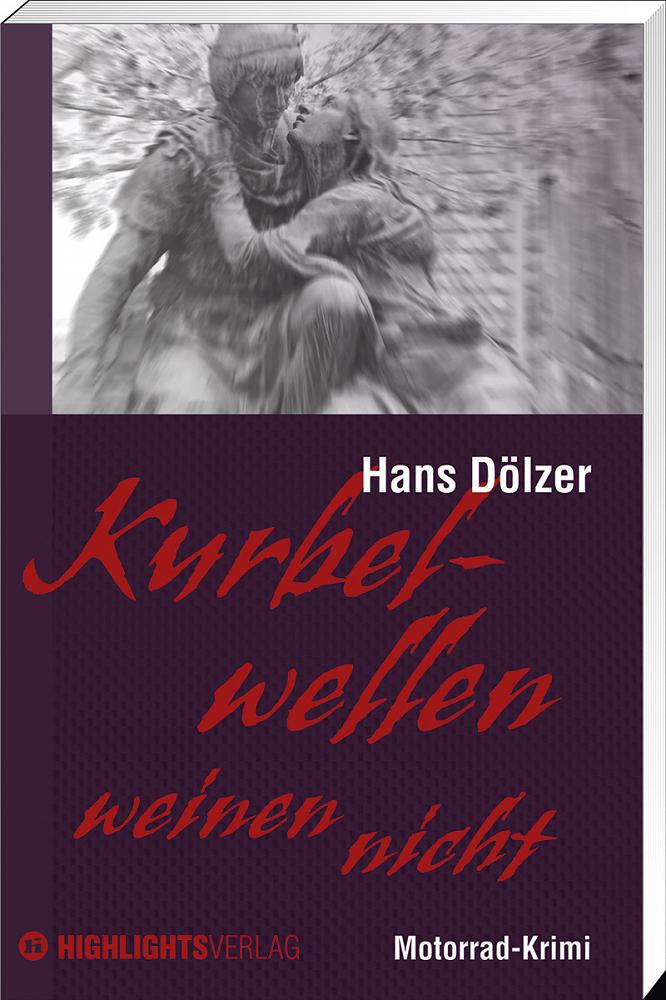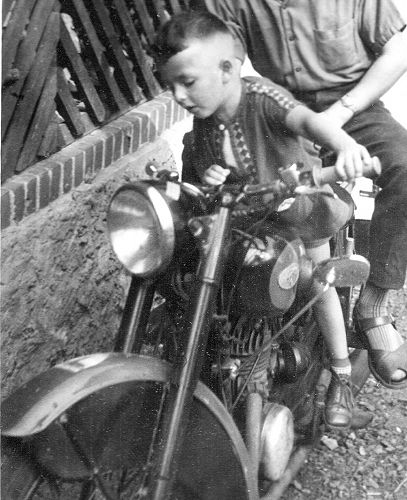
Crankshafts Don’t Cry. Jojo’s First Case
An excerpt from the book by Hans Dölzer
Around half past eleven Jojo arrived in Melsungen on his sidecar combination. Here the sky had cleared and the warm sun made for an Indian summer. He wanted to surprise Bea, so hadn’t called to let her know he was coming. But it was him who was in for a surprise.
“Ms. Aschenbrenner was discharged this morning,” explained Gisela Breckow, as Jonas stared wide-eyed at the spot where Bea’s bed had been. He looked for the nurse’s station, but it was empty. Finally, he stopped a sturdy dark-haired man dressed in white who was rushing by. “Evening – I’m just the physiotherapist here,” he explained. “Ms. Aschenbrenner? Have a look in the reading room at the front!”
Indeed, the journalist found Beate there. She was sitting on a chair with her packed bag and crutches beside her and her leg in its cast stretched out, flipping through a magazine. She looked up and smiled as Jojo entered the room. “How … Why … ?” he stammered.
“The doctor said I am allowed to go home today,” said Bea. “He found it quite uncanny how quickly my bones heal.” And after a pause: “Will you take me home?” “Yes, of course, but – where will we get a helmet?”
"Doctor Plaut will lend me his. He rides a motorbike too and doesn’t need it at the moment, he says. At least until the cast comes off.”
Jojo sat down and began talking about his experiences with the shadowers and blackmailers “Meier” and “Schmidt”. The young woman could add to this with a report on “Ponytail Müller”.
“There’s more to this than just 50-year-old bones,” the journalist surmised. “I’m almost getting the impression that the story is too hot for us.” But the fighting spirit had awoken in Bea. “But how ridiculous would it be if we let ourselves get scared off by a bunch of baby faces? And your Stasi story? You’re knee deep in it, whether you like it or not!”
Jonas had to agree with her. If he delivered the requested fairytale, he would never be able to look himself in the face again; and if he didn’t deliver, his career as a journalist was over. Whichever way he looked at it, it seemed he was compelled to continue his investigation.
“Anyhow,” Bea continued, encouraging him further, “Doğan has told me between the lines that he wants to keep helping us. We should meet with him to begin with.”
[...]
***
Both their stomachs were growling, and in Bea’s refrigerator there sat only a lonely yoghurt. “You’re as poor as a church mouse, aren’t you?”, teased Jojo as he loaded Bea with her cast and crutches into his sidecar and whisked her away to the Spangenberg City Café.
Contrary to its name, the café offered quite hearty meals, but they had to be ordered in advance. A quick call established that plenty of food left over from an event that morning would feed further hungry guests.
“A win-win situation,” Jonas said, in mock management-speak – and then, because he was so hungry, hit the throttle so hard that it took his cargo some effort not to shoot out of the sidecar…
As the first leaves were already changing colour outside, the two
amateur detectives enjoyed their starter of chestnut soup, a hearty greeting
from the south of Germany, where the warmth-loving trees grew. For the main
course there was gratin de cèpes, a casserole of fresh porcini mushrooms. Drinking her petit café noir, the French espresso,
Bea leant back, full and happy: “I really needed that after the hospital
grub!”
Translation by Rod Rojas
Gallery

